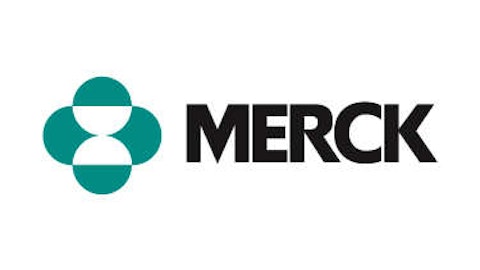
Like a bank?
So what tech company mirrors a financial titan like Bank of America Corp (NYSE:BAC)? Surprisingly, it’s eBay Inc (NASDAQ:EBAY). Have you sold something in an eBay Inc (NASDAQ:EBAY) auction recently? Well, if you wanted to include a more than a few item pictures, you’ll be charged a fee. Shipping charges are highly regulated, which is another expense to be concerned with.
Once you have sold something on eBay Inc (NASDAQ:EBAY), you’re charged a final value fee, which is calculated as a percentage of the sale price. In fact, eBay’s fee structure is so complicated that they offer potential sellers a calculator in order to get a better idea how much it will all cost to sell an item.
On top of all this, if you’re using PayPal to accept money for your auction, you’ll be charged a fee for that transaction as well. PayPal is an eBay company, acquired in 2002.
eBay versus banks
eBay’s fee structure can be more complex that what Bank of America Corp (NYSE:BAC) charges for a credit card account. For a line of credit, you normally have an annual fee, a fee if you pay your bill late, and of course interest fees if you hold a balance from one month to the next.
Of course, other than the annual credit card fee, the additional charges that Bank of America Corp (NYSE:BAC) levies could be regarded as penalties for late payment or for borrowing money. But keep this in mind: using eBay you’ll have to pay fees no matter what you do. Is that the same reality as banks? Actually, it isn’t. In fact, according to the American Bankers Association, 59% of people are able to avoid bank fees. With eBay Inc (NASDAQ:EBAY) and PayPal, there’s no way to avoid the fees.

Securing transactions
It wasn’t always like this for eBay. It used to be simple for people to sell things at their online auctions. Now that eBay is a huge company, however, it is trying to make cash at every turn. And the alternatives to eBay Inc (NASDAQ:EBAY) aren’t good. One option is Craigslist, but since that company is a non-profit, it doesn’t offer much in terms of customer service and secure transactions.
The secure transactions component of eBay Inc (NASDAQ:EBAY) is really quite important. If you ever have a problem on eBay or PayPal, there is a well-developed dispute resolution process. The same could be said for banks and the fees that they charge: you’re actually paying for security and comfort. Go for it on your own if you wish. We’ll still be here to offer you safety and security when you need it.
It seems as if everyone already knows this about banks. But few people know this about eBay and PayPal. The company might want to better educate people that they are a beacon of stability in the scary world of online transactions. Why not use PayPal? You’re much more secure.
Enter Amazon.com, Inc. (NASDAQ:AMZN)
It would be smart for eBay to consider this. They are drawing the ire of their community of sellers who increasingly realize that it’s probably better to sell goods on Amazon.com, Inc. (NASDAQ:AMZN) rather than eBay. In fact, Amazon offers more avenues to sell with their growing reach that includes tablets and advertising. Plus, Amazon is working on providing increased logistical support, expanding their in-house storage, and shipping capabilities.
Amazon doesn’t charge a fee at every turn. And there’s nothing stopping them from selling items at auction – or quite possibly in some other innovative way. When comparing Amazon.com, Inc. (NASDAQ:AMZN) to eBay Inc (NASDAQ:EBAY) or even to Bank of America, most people like Amazon. Customer sentiment is important while doing business, and it is also important when considering which stocks to buy.
That’s important. Of course, you get customers to like you by not charging a number of fees. eBay is apparently still learning that.
The article Why This Tech Company Charges so Many Fees Like a Bank originally appeared on Fool.com and is written by Daniel Cawrey.
Daniel Cawrey has no position in any stocks mentioned. Follow Daniel on Twitter @danielcawrey.The Motley Fool recommends Amazon.com and eBay. The Motley Fool owns shares of Amazon.com, Bank of America, and eBay. Daniel is a member of The Motley Fool Blog Network — entries represent the personal opinion of the blogger and are not formally edited.
Copyright © 1995 – 2013 The Motley Fool, LLC. All rights reserved. The Motley Fool has a disclosure policy.





